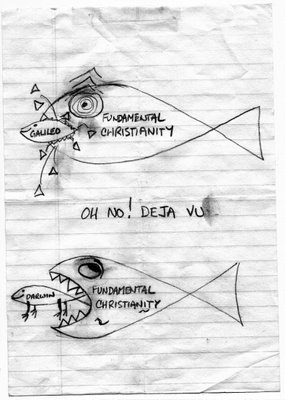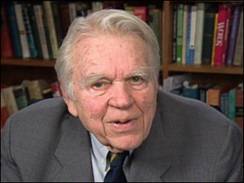MORE SCIENCE. CLEAR AND BEAUTIFUL
This passage that I'm passing on to you is so clear about how environment and adaptation interact. I love reading wonderful passages like the following. It's like this—I think I understand something, but then I read a passage like the following, and I realize that just by shifting a viewpoint to this side or that by a millimeter I see whole new doors of perception opening.
The following by Edward Hagen, "Controversial Issues in Evolutionary Psychology",
Handbook of Evolutionary Psychology, pp. 153-154:
[OPEN QUOTE]
REPRODUCTION AND THE CAUSAL STRUCTURE OF THE ENVIRONMENT
For a new, heritable trait to have positive reproductive consequences, it must do something. It must transform the organism or environment in a way that enhances the reproduction of the individuals possessing it. Reproduction is an enormously complex process in which the organism must successfully accomplish thousands of transformations of itself and its environment. Each aspect of the or¬ganism and environment that must be transformed can be transformed in countless ways, yet only a small subset of these transformations furthers the goal of reproduction, with most impeding or preventing it. Virtually all of the ways light striking the lens can be reflected and refracted, for example, will not focus the light on the retina. These transformations—these causal chains—must, therefore, be initiated by adaptations that have the special physical properties required to change things in just the right way. The shape of the lens is exactly that required to focus incident light onto the retina.
Both the things an organism must do to reproduce, as well as those things it could do to enhance reproduction, are called selection pressures, because they either have resulted, or could result, in selection for an adaptation. To increase in frequency, a new heritable trait must improve an organism's ability to effect a particular transformation of the environment, or it must provide an ability to effect a new transformation of the environment. In either case, it must initiate changes that propagate along causal chains—causal chains whose ultimate effects increase the number of offspring of individuals possessing the trait relative to those that do not.
*Crucially, these causal chains are not part of the trait itself. They constitute the essential environmental background, the EEA [environment of evolutionary adaptedness], of the trait. Many such causal chains propagate within the body of the organism, but many also detour far outside it. The feathers on the ruffled grouse, for example, change the spectral and intensity distributions of incident beams of light, reflecting the altered beams. These altered beams strike the retinas of predators, whose brains process the patterns of retinal activation. Depending on whether the light was reflected off uncamouflaged or camouflaged feathers, the neural computations in the predator brains will either recognize or fail to recognize the grouse, and this will either result in claws, beaks, and fangs penetrating the grouse, killing it, or the passing by of the predator, leaving the grouse unscathed.
The spread of camouflage feathers in the grouse population depends critically on the rich, preexisting causal structure of the environment inhabited by the grouse: the colors and patterns of the forest habitat, the types of predators, the structure of their brains, and their hunting strategies. This preexisting causal structure is referred to as the EEA of the camouflage feathers. Because aspects of the causal structure of the environment that are relevant to one adaptation won't necessarily be relevant to another, the EEA is adaptation-specific The grouse feather EEA, for example, is different from the grouse lung EEA (as shorthand, the term EEA is also used to refer to all environmental features that were relevant to an organism's reproduction). Environments change, so the causal structure of the environment an adaptation finds itself in may not correspond to the causal structure the adaptation evolved in; therefore, the adaptation may not work as designed. If the forest changes colors, for example, the camouflage feathers may no longer camouflage the grouse (but its lungs will continue to work just fine).
For humans, some aspects of the modern environment do diverge quite radically from their EEA. Automobiles kill far more people today than do spiders or snakes, for example, but people are far more averse to spiders and snakes than they are to automobiles because in the EEA, spiders and snakes were a serious threat, whereas automobiles didn't exist. We, therefore, evolved an innate aversion to spiders and snakes but not to automobiles (e.g., Ohman & Mineka, 2001).
If a species' current environment diverges too rapidly and too far from its EEA, the species will go extinct. The human species is clearly not going extinct; hence the common belief that EP claims humans currently live in an entirely novel environment is incorrect. Most aspects of the modern environment closely resemble our EEA. Hearts, lungs, eyes, language, pain, locomotion, memory, the immune system, pregnancy, and the psychologies underlying mating, parenting, friendship, and status all work as advertised-excellent evidence that the modern environment does not radically diverge from the EEA.
_____________________________________________________________
*An adaptation can evolve if it has a positive impact on reproduction on average. It need not have positive impact all the time, nor in every situation, nor even every generation. [CLOSE QUOTE]
 WALMART’S SKID MARKS
WALMART’S SKID MARKS











